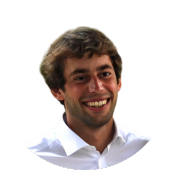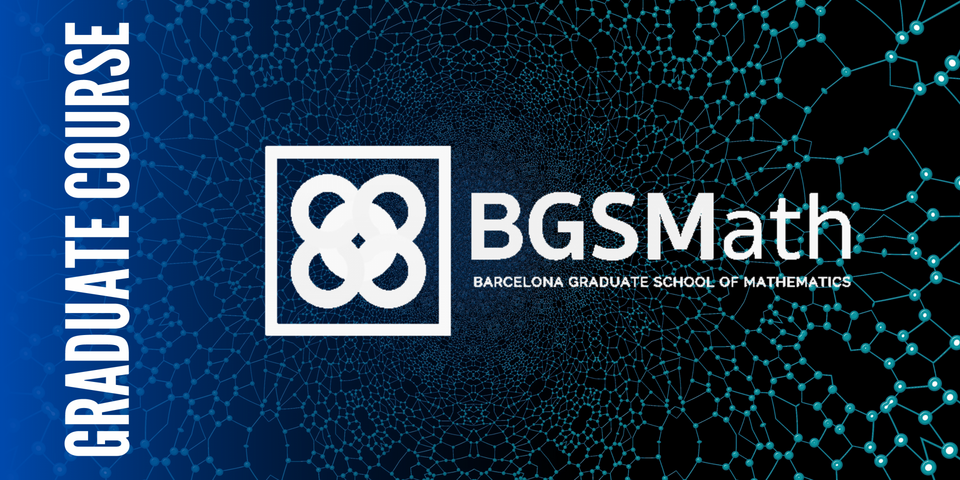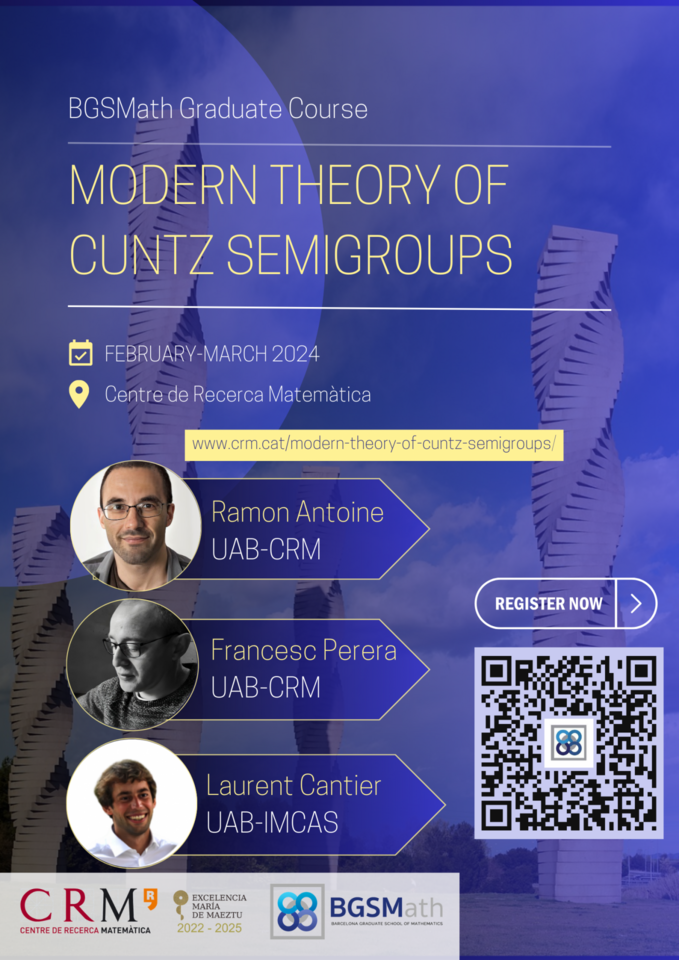Course on Modern Theory of Cuntz Semigroups
Sign into March 07, 2024
Dates: From February 13th to March 7th, 2024
Location: Centre de Recerca Matemàtica (Room: C1028) / Zoom Meeting
Format: Hybrid
* Registration is free but mandatory
Time Schedule: 11h to 13h
February: days 13, 15, 20, 22, 27 and 29
March: days 5 and 7
Over time, it has proved itself to be an essential object in our understanding of structural properties of C*-algebras. Indeed, many aspects in the theory can be codified in algebraic properties of this semigroup. For example, the fact that its order can be read off from suitable functionals is one of the ingredients of the so-called Toms-Winter conjecture, that predicts that three formally disparate conditions are in fact equivalent.
The Cuntz semigroup lies in a category whose structure has been analysed in a lot of detail over the last years. Constructions in this category have been reflected back to C*-algebras and the Cuntz semigroup factor has been shown to preserve many of these constructions. The techniques introduced have allowed us to gain new understanding of the class of C*-algebras of stable rank one, solving open problems within this class. More recently, it also shows to be an essential ingredient in describing crossed products by certain actions of groups. Such crossed products are important examples that in many cases might satisfy additional properties that make them amenable to classification. This is therefore a vibrant area of research that continues to expand and produce exciting new results.

Associate Professor in the Department of Mathematics at the Universitat Autònoma de Barcelona specializing in the structure and classification of rings, modules, and C*-algebras, with a particular focus on their interactions with dynamics, combinatorics, and topology.

Margarita Salas postdoctoral fellow affiliated with the Institut of Mathematics at the Czech Academy of Sciences and the Department of Mathematics at the Universitat Autònoma de Barcelona. He earned their Ph.D. in 2020 from the UAB under the supervision of Dr. Antoine and Dr. Perera. His research lies in the classification of C*-algebras within Operator Algebras. He is geared towards algebraic aspects of the theory such as the study of the Cuntz semigroup (and some of its variations) while being attracted to construct tools for classification via Category Theory.

Associate Professor in the Department of Mathematics at the Universitat Autònoma de Barcelona and the current Managing Editor of the journal Publicacions Matemàtiques. His research interests are in Operator Algebras, Noncommutative Algebra, Semigroup Theory, and the interplay between these; more specifically, he is interested in the structure of nuclear C*-algebras and their classification, with particular emphasis on the study of invariants such as K-Theory and the Cuntz semigroup. Moreover he is involved in the connections of C*-algebras with Dynamical Systems and with more general algebraic structures, such as Steinberg algebras and Leavitt Path algebras.
- Basic Theory of C*-algebras
- Spectral radius
- Finite dimensional algebras
- Commutative algebras and the Gelfand representation
- Hilbert spaces, the Gelfand-Naimark-Segal representation
- Projections, positive elements, and unitaries. \(\textbf{K}\)-Theory
- Comparison of projections. The Grothendieck group \(K_0\)
- Comparison of positive elements
- Traces, dimension functions
- Unitaries. The group \(K_1\)
- The Elliott programme
- The Elliott invariant and success of the programme
- Counterexamples to the original conjecture
- The Toms-Winter conjecture
- The Cuntz semigroup
- Classical definition
- Cuntz’s Theorem on existence of quasitraces
- Non-continuity of the functor W(-), stable definition
- The Category Cu
- Definition of the category and relation with C*-algebras
- Compact containment
- Axioms (O1)-(O4)
- The category Cu and the Coward-Elliott-Ivanescu Theorem
- Axiom (O5)
- Limits in the category
- The Completion functor: Cu(-) as a completion of W(-)
- Examples and applications
- Some examples
- Brown-Perera-Toms’ Theorem for \(\mathcal Z\)-stable algebras
- The relationship of the Cuntz semigroup with the Elliott invariant
- Almost unperforation and almost divisibility: the relationship to the Toms-Winter conjecture
- The Cuntz semigroup for C-algebras of stable rank one.
- Additional properties: axioms (O6) and (O6+), inf-semilattice structure.
- The Blackadar-Handelman conjectures
- Glimm Halving
- Realization of Ranks
- Further categorical structure
- The \(\tau\)-construction: bivariant Cuntz semigroups
- Closed monoidal structure
- Products, coproducts, and ultraproducts. Preservation of such structures for C*-algebras.
- Definition of the category and relation with C*-algebras
and domains. Encyclopedia of Mathematics and its Applications, 93. Cambridge University
Press, Cambridge, 2003.
[2] G. J. Murphy, C*-algebras and operator theory, Academic Press, 1990.
[3] M. Rørdam, Classification of nuclear C*-algebras. Encyclopaedia of Mathematical Sciences, 126.
Operator Algebras and Non-commutative Geometry, 7, 2002.
[4] M. Rørdam, F. Larsen, N. J. Laustsen, An introduction to K-theory for C*-algebras, London
Mathematical Society Student Texts, 49. Cambridge University Press, Cambridge, 2000.
[5] K. R. Strung, An introduction to C*-algebras and the classification program, Advanced Courses
in Mathematics, Birkh¨auser/Springer, 2021.
[6] N. E.Wegge-Olsen, K-theory and C*-algebras. A friendly approach. Oxford Science Publications,
1993.
| Name | Institution |
|---|---|
| Othman Abad | Sidi Mohamed Ben Abdellah University, Fez, Morocco |
| Fairouz Bouchelaghem | University of mostaganem |
| Swarnadeep Choudhury | Tripura University (A Central University) |
| Jordi Cardiel | Universitat Autònoma de Barcelona |
| Guillem Quingles Daví | Universitat Autònoma de Barcelona |
| César José de Almenara de la Peña | Universitat Pompeu Fabra |
| Enrique Pardo | Universidad de Cádiz |
| JOAN BOSA | Universidad de Zaragoza |
| Yang Ye | Fudan University |
| Yanyu Wang | Fudan University |
| Jianchao Wu | Fudan University |
| Shixun Cui | Fudan University |
| Hanqing Zhao | Fudan University |
| Akshara Prasad | University of Göttingen |
| Georg Huppertz | Chalmers University of Technology |
| Josep Fontana McNally | University of Oxford |
| Shanshan Hua | University of Oxford |
| Xiaoqi Lu | University of Glasgow |
| Joachim Zacharias | University of Glasgow |
|
For inquiries about this event please contact the Scientific Events Coordinator Ms. Núria Hernández at nhernandez@crm.cat
|




